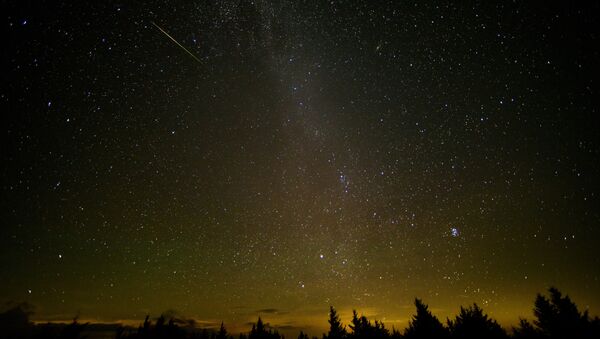One of the two annual meteor showers resulting from the well-documented Halley's comet — the other Orionids shower occurs annually every October — will see dust specks and very small rocks streaking into our atmosphere at speeds of up to 148,000 miles per hour, one of Earth's speedier meteor events.
Although the Aquariids are better observed below the Equator — with an average of 20-30 meteors per hour at its height — skywatchers in the Northern Hemisphere can still be assured of a show, although with about half that number.
A meteor shower is most commonly the remnants left behind by the passage of a comet — an icy ball of rocks, chemicals and dust speeding around our sun on a radically elliptical orbit — burning up in the atmosphere.
To watch the celestial display, you will naturally have to find a dark place far from urban centers and be lucky enough to have clear skies.
The Earth, passing through the thickest section of cometary debris, will catch the cosmic specks, burning them up in a fiery show, most actively between midnight and about an hour before dawn.
Following a short period of time to allow for adjustment to darkness, the naked eye is preferred when observing a meteor shower, as telescopes and binoculars significantly narrow a person's field of view.
Interested stargazers can find more information here and here, while the International Meteor Organization offers detailed information on the many events that happen in our night sky.






